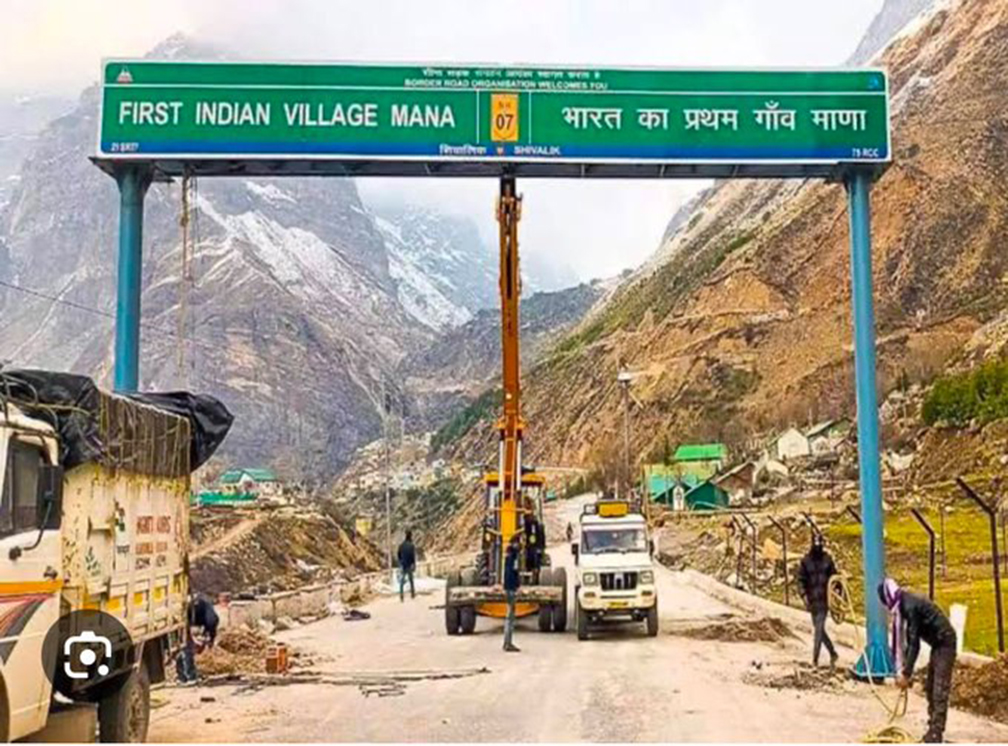The terror attack in Pahalgam has once again brought to the fore the menace of radical Islamism and Pakistan as a fountainhead of terrorism. The general mood of the nation(India) is that the perpetrators of this dastardly act, and their masters across the border, must be dealt with in an exemplary manner. The Government of India has already initiated a number of steps. This is apparently the first tranche of the ‘payback package’.
The Rashtriya Swayamsevak Sangh (RSS) has been cautioning successive governments, as well as Indian society, since the formation of Pakistan, to be wary of the Islamist nation. A large section of pseudo-seculars used to accuse the RSS of advocating a tough stand against Pakistan and terrorism.
In fact, while terrorism was at its peak in Jammu and Kashmir, the RSS remained at the forefront in taking a stand against terrorists. Not only did it help in the relief and rehabilitation of Hindu migrants from the Valley, but it was also the first civil society organisation to consistently oppose Article 370, which played a key role in nurturing radical Islamists in Jammu and Kashmir. Several RSS leaders were targeted by terrorists and radical Islamists in the region. In 2019, a prominent RSS functionary, Chandrakant Sharma, and his personal security officer were killed by Hizbul Mujahideen in Kishtwar.
Undeterred by these attacks and the targeted killings of its workers and sympathisers, RSS volunteers continued their work on the ground amidst extremely adverse circumstances.
Way back in 1990, the RSS passed a resolution on ‘Jammu and Kashmir’, clearly stating that it “is absolutely confident that our countrymen — to the last person — would rise as one single colossal national entity to combat the challenge of Pakistan and administer a lesson to her for all her aggressive designs.” The RSS assured the government that each and every Swayamsevak of the Sangh would extend wholehearted co-operation in all its endeavours to defend national honour and sovereignty.
The Sangh has also repeatedly made it clear that a permanent solution to the Kashmir issue lies in getting Pakistan to vacate those parts of Jammu and Kashmir which it has been occupying illegally for more than 75 years.
After the Pahalgam attack, the RSS General Secretary, Dattatreya Hosabale, reiterated, “This is an attack on the unity and integrity of our nation. All political parties and associations should rise above their differences and condemn this terror act. The government should ensure all required relief and assistance to the affected families and ensure appropriate punishment for the people responsible for this attack.”
Border Management
In light of the Pahalgam terror attack, it is time to revisit some fundamental issues, one of which is ‘border management’. It is important to note that border management is not solely the task of defence forces. The local communities living in border areas play an important role, especially when it comes to checking infiltration from across the border.
Seema Jagaran Manch, an RSS-inspired organisation set up in 1985 in Jaisalmer, Rajasthan, has taken up the task of helping Indian authorities as well as local communities to strengthen border management.
According to the Manch, the Indo-Pak border is among the five most dangerous borders in the world, and infiltration remains one of the key challenges.
In a recent editorial in Seema Sanghosh, a unique journal on border-related issues brought out by the Manch, it aptly described the challenge: “We have never shown the same awareness about border security or border residents as we show on other issues. We hardly discuss these important issues related to the security of the country.”
It further added, “In our daily life, we are concerned about politics, movies, new iPhone models, holidays abroad, but we hardly talk about the challenges faced by our citizens living in the border areas. National security is not merely a matter for the forces — we should also understand the acuteness of this issue. The desolation of border villages, the encroachment of the frontier, the cunning tricks of the enemy country, and the least-known parts of the land are not as close to us as they should be.”
The Manch has appreciated the Modi government’s proactive approach in turning the ‘last village’ at the border into the ‘first village’ and undertaking development projects in these areas on an unprecedented scale.
However, we as a society need to develop greater connectivity with our border villages, raise their issues in mainstream public discourse, and remove the sense of isolation and alienation that often grips communities in border areas.
According to the Manch, it is important for India as a nation to recognise the unwavering devotion of people living in border areas to the country despite adverse conditions. These ‘peripheral citizens’ sacrifice their lives in defence of the country.
Indians living far away from the borders in comfortable zones must salute the willpower of the border communities — who do not migrate even in the absence of facilities — and their determination to continuously contribute to strengthening the country’s security.
